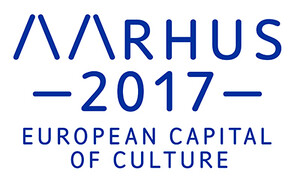An audiobook surrounding the question: Has art lost its heart?
Conversations in Time
What is the role of art in an age of accelerating social change and environmental uncertainty?
Conversations in Time brings together an audiobook of American writer and artist, Suzi Gablik’s important work, Conversations Before the End of Time (1995), and a series of newly commissioned conversations, questioning the role of art in our time.
Hear artists, writers and thinkers, Cecil Balmond, Tom Nielsen, Haroon Mirza, Jussi Parikka, Janneke Van Leeuwen, Andreas Roepstorff, Jimmie Durham, Marina Warner, Adrian Searle, Lara Pawson, Xavier Bray, Dorothy Cross, Mette Sandbye, Kirsten Justesen, Adam Phillips and Cornelia Grassi in mutual discussions.
** New conversations are now available between the artist and poet, Annie Freud and the poet Elaine Beckett and author A.L. Kennedy with author and filmmaker, Francesca Melandri **
The audiobook and all conversations are available at www.conversationsintime.eu
Conversations in Time is a Cast Iron Radio production in collaboration with European Capital of Culture Aarhus 2017.
Aarhus 2017 is delighted to partner with Cast Iron Productions to bring Conversations in Time to people across the world via podcasting. These specially curated conversations between some of the leading creative minds open up ideas and stories that interrogate and contemplate the place and role of art and creative pursuits as we push into the next decades of the 21st century, says Juliana Engberg, Programme Director of European Capital of Culture Aarhus 2017.
Background
Gablik originally transcribed 19 conversations between herself and a range of artists, scientists, critics and practitioners, based on what she believed was a crisis point for art, humanity and the environment—she called it Conversations Before the End of Time. Inspired by its prescient dialogues, artists, writers and cultural thinkers have been recorded in one to one conversations, broadly inspired by the question: “What is the purpose or role of art in an age of accelerating social change and environmental uncertainty?”
Now in her 80s, the book is as relevant as it was over 20 years ago. On her own re-reading Gablik said, “It could have been written yesterday…”
“If the apocalyptic strain in my own thinking was in some ways the trigger, the starting point from which the book launched, it was necessarily the place where it ended up. When conversing with people, frequently I found myself in the role of merely feeding the meter—creating a spaciousness through listening, and relying on something new to emerge out of the moment. Inevitably it did.”
–Suzi Gablik
More conversations are added at regular intervals. Get the podcasts at www.aarhus2017.dk, www.conversationsintime.eu or iTunes.


